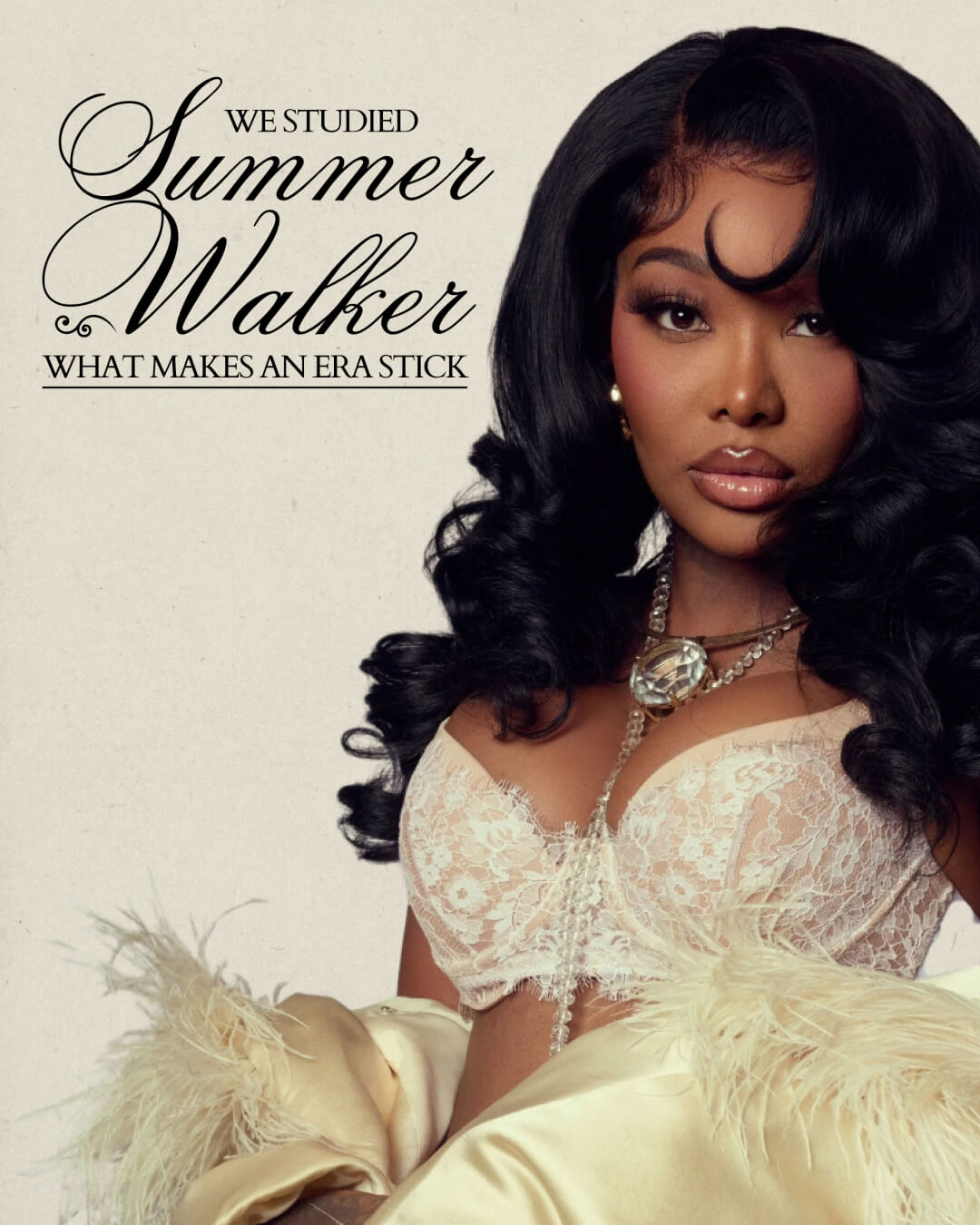
Venice Music: DistroKid vs. TuneCore vs. CD Baby vs. Venice
In 2024, having a music distributor is non-negotiable for serious artists. Digital music distribution is crucial as streaming dominates how music is consumed, and distributing to multiple digital streaming platforms (DSPs) is essential to create as many revenue streams as possible. In today’s landscape, it’s about which one to choose.
While many artists gravitate towards well-known platforms like DistroKid or TuneCore, following the crowd might not be the smartest move if you're aiming to build a sustainable career. Independent artists need more than just distribution. They need tools that align with their specific goals, support their growth, and maximize revenue in ways that go beyond just putting songs on Spotify or Apple Music.
Let’s break down what you really need from a distributor and why it’s worth exploring more tailored options like Venice to support your journey.
Let’s break down the options: Venice vs DistroKid vs Tunecore vs CDBaby.
<"BODY-CTA">
Music Distribution Essentials: What to Consider
For self-releasing artists, music distribution isn’t just about uploading your tracks to social platforms, Spotify, Apple Music, YouTube Music, or Amazon Music. You need to think about how music distribution platforms support your career holistically as a rising artist. Features like earnings transparency, support, and added costs make a big difference in how far your own music business can go.
As you evaluate your options, you should ask key questions:
- Which distributor offers the most features without hidden fees?
- Who provides the best overall value?
- Which platform offers promotional tools to boost your visibility and growth?
To help you navigate this whole world, we’ve compared the four major distributors: Tunecore, Distrokid, CDBaby and Venice so you can make an informed decision.
Venice vs. DistroKid
![DistroKid Review [Top 5 Advantages and Disadvantages]](https://cdn.prod.website-files.com/6657203d31396fc757dfafcc/67112d11fa03888ce232b6c1_66feeafc28a5e84d899043d0_545342c-a167-f56-1e5c-13866d1fb522_DistroKid_Honest_Review.avif)
Features and Flexibility
Venice and DistroKid both distribute music to all major streaming platforms like Apple Music and Spotify, Venice goes further with additional features that support your long-term career.
Venice offers:
- Unlimited releases: Release Unlimited Music with no hidden fees
- Powerful tools: Access to Spotify Discovery Mode and YouTube Content ID at no extra cost
- Support you need: Concierge-level artist support
DistroKid, in contrast, charges $22.99/year for its basic tier, but this low price doesn't tell the full story. While it offers unlimited song uploads, customizable release dates, and basic royalty splits, add ons like Content ID or video distribution come with steep fees. DistroKid is notorious for nickel-and-diming musicians—tacking on fees for features that Venice includes in its membership, which can result in paying well over $600 annually when you add up the extras.
For artists serious about maximizing growth, Venice allows you to upload your music and provides a comprehensive set of tools without the hidden costs.
Learn more about how the difference between Venice and DistroKid here.
Venice vs. TuneCore

Pricing and Earnings
TuneCore has long been a solid choice for independent artists, with a focus on transparent pricing. However, it operates on a pay-per-release model. Releasing an album on TuneCore costs $29.99 for the first three releases per year and $49.99 annually for subsequent years. While TuneCore doesn't take a cut of your music royalties, these fees can add up, especially for artists releasing multiple projects.
In contrast, Venice's Pro Membership costs $499/year (or $50/month), offering unlimited distribution for both audio and video content and personalized support. Unlike TuneCore's per-release fees, Venice ensures that artists are not penalized for being prolific, offering consistent pricing regardless of how much music you release.
When you factor in the free access to tools like YouTube Content ID, Venice offers superior value for artists looking to keep more of their earnings.
Learn more about how the difference between Venice and Tunecore here.
Venice vs. CD Baby

Monetization and Revenue Streams
CD Baby has been a reliable platform for independent musicians, particularly for its ability to monetize tracks through downloads and publishing royalties. However, CD Baby works on a commission-based model, taking a 9% cut of your revenue in exchange for music distribution. You also pay a one-time fee of $29 per album or $9.95 per single upload, but that's before any additional features like Content ID.
Venice, by contrast, does not take any percentage of your revenue from YouTube. With Venice, all your earnings from the digital distribution from streaming services, digital sales and video distribution are yours. While CD Baby offers solid services, Venice's no-commission approach and included features give independent artists more control over their profits.
Learn more about how the difference between Venice and CD Baby here.

YouTube Content ID: Comparing Costs
Another important revenue stream for independent artists is YouTube Content ID. YouTube's system ensures that if your music is used in videos, you get a share of the ad revenue.
DistroKid charges $4.95 per track, per year for YouTube Content ID, while also taking 20% of your earnings. CD Baby takes a commission as well, and TuneCore charges a one-time fee for Content ID. Venice offers Content ID as part of the Pro Membership at no additional cost—unlimited tracks, zero revenue share. This makes a big difference for indie artists, with extensive catalogs looking to monetize all their music without giving up a cut.
Video Distribution: Who's Maximizing Your Visual Presence?
Music videos are essential in today's digital music publishing landscape. Venice includes unlimited video distribution to platforms like Vevo, Tidal, and Apple Music, without additional fees. This includes getting your own paid Vevo channel and the ability to distribute concert videos, further amplifying your reach.
DistroKid's DistroVid, on the other hand, charges $99/year for video distribution, making Venice's all-inclusive approach a better deal for artists looking to sell and capitalize on visuals.
Marketing and Promotion Strategies
One of the standout advantages of Venice is how it empowers artists to promote their work more effectively. While DistroKid charges for some promotional tools, Venice includes personalized support to help boost visibility across platforms like Spotify and YouTube Music.
Venice offers tools like Spotify Discovery Mode, giving artists a leg up in algorithmic playlisting, ensuring your music reaches the right audience. Additionally, Venice helps artists optimize their tracks for YouTube Music, where monetization opportunities extend beyond streams to include ad revenue from video content.
One unique feature of Venice is its Co-Manager AI tool, which acts as a digital assistant specifically designed to support artists in managing their music business. Co-Manager helps guide you through crucial marketing decisions, such as timing your releases for optimal impact or recommending platforms where your audience is most active. It also analyzes streaming data to provide insights on how to better promote your music.
Whether you're working solo or alongside a team, Venice’s platform—along with the Co-Manager—ensures your promotional campaigns are executed effectively. With Co-Manager’s assistance, artists can get their music featured on platforms that matter most to their genre and audience, whether it’s releasing music videos on Vevo or promoting a single through targeted DSP campaigns. Venice ensures that every release has a comprehensive strategy for growth, giving you the tools you need to succeed.
Guidance and Community: Venice's Artist-First Approach
Beyond features, distribution is about support and access to resources that help you grow. Venice offers personalized guidance from industry experts including managers like Troy Carter, producers like Rodney Jerkins, alongside a vibrant artist community. This company is about empowering artists with strategies for long-term success in their careers while maintaining control of their art. If you have a question about anything from music production to how release cover songs, the Venice has experts to help.
Additionally, Venice offers incredible opportunities such as group trips to the platforms that power your music such as our most recent visit bringing our Pro Members to YouTube HQ.

DistroKid, TuneCore, and CD Baby all offer basic customer support, but none provide the level of expert consultation and artist community that Venice has built into its platform.
Artist Testimonial

"When I first heard about Venice, I compared it to Tunecore from a cost perspective. It was a significant investment, so it needed to be worth it. I liked their offerings, so I decided to release my next single with Venice. When I had questions, the Venice team responded within 12 hours with thoughtful and detailed explanations. They understood my needs from a musician’s perspective, making me feel like I had an industry-level team supporting me. Now, I feel confident knowing I have knowledgeable people helping me ensure everything is done right."
-Kritta, Artist
The Final Verdict: Which Distributor is Best?
When you compare these music distributors, Venice offers more features, better support, guidance and clearer value for serious a independent artist. While DistroKid and TuneCore present affordable entry points for releasing music but their upcharges and limitations can cost you more in the long run. CD Baby's commission-based model also eats into your profits.
Venice stands out for providing artists with real support—unlimited distribution, YouTube Content ID, video distribution—at one consistent price, ensuring you, the rising artist, can reach out to fans, revenue and royalty collection without worrying about hidden fees.
As a musician, choosing the right distributor is about building a sustainable career for your music business. Venice offers the tools and support to help you do just that.
Sign up here and start distributing your music today.
Our Support Team Are Musicians Themselves So They Know How Important Your Release Is.
Our Support Team Are Musicians Themselves So They Know How Important Your Release Is.
You may also want to read...
LABEL-LEVEL ROLLOUT STRATEGIES
.svg)






